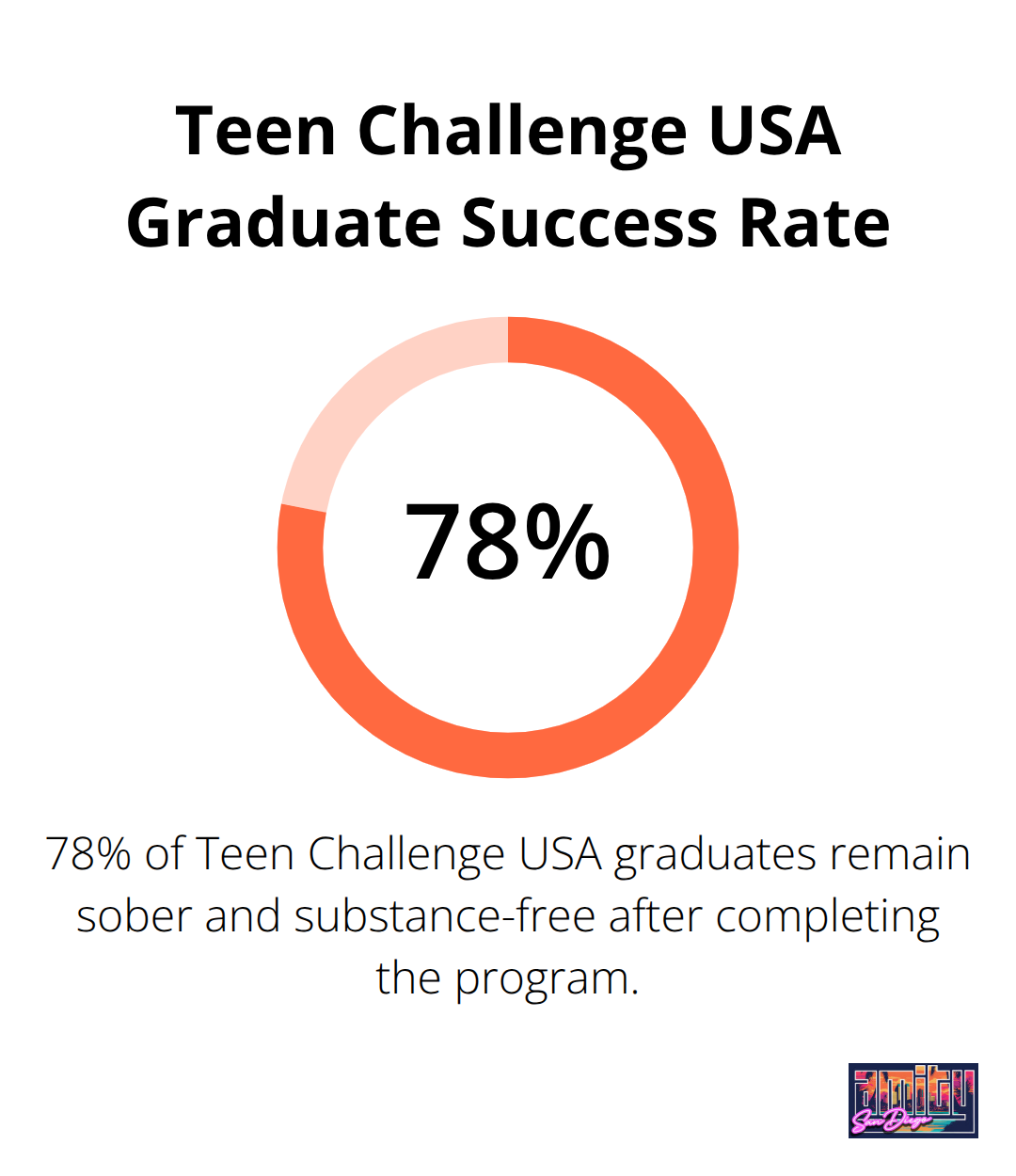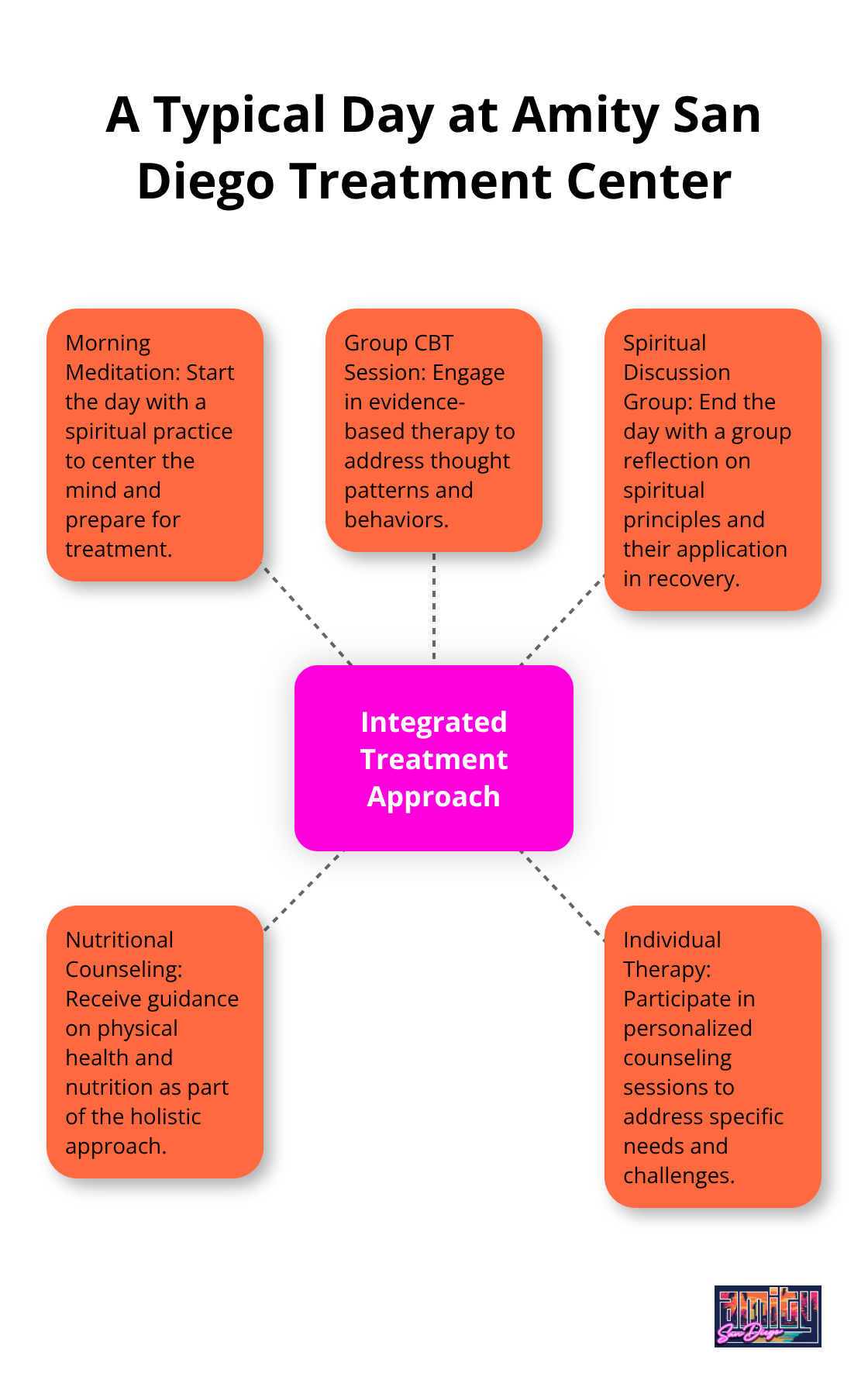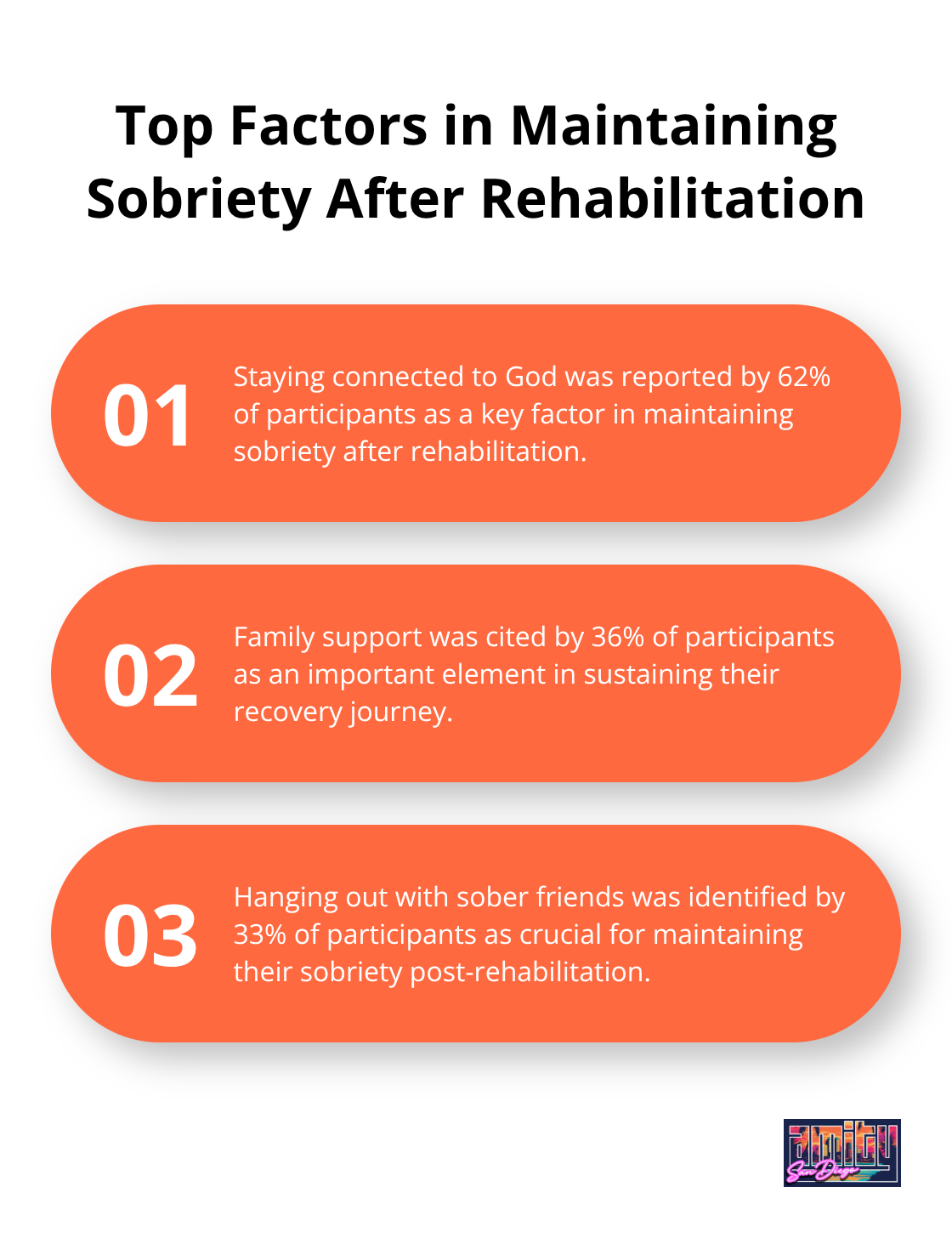At Amity San Diego, we’ve seen firsthand the transformative power of faith-based substance abuse treatment programs. These approaches combine spiritual practices with evidence-based therapies, offering a holistic path to recovery.
Faith can provide strength, purpose, and a supportive community for those struggling with addiction. In this post, we’ll explore how integrating faith into treatment can lead to more effective and sustainable recovery outcomes.
Faith as a Cornerstone in Recovery
At Amity San Diego, we’ve observed the transformative power of faith in addiction recovery. Faith extends beyond religious beliefs; it encompasses finding meaning, purpose, and hope in the face of adversity.
The Spiritual Dimension of Healing
Addiction often leaves individuals feeling spiritually empty. Faith-based recovery programs address this void by reconnecting people with their spiritual selves. A 2018 study in the Journal of Religion and Health revealed that individuals who reported higher levels of spirituality were 1.5 times more likely to maintain sobriety after treatment.
Strength Through Belief
Faith provides a source of strength that many find essential during the challenging journey of recovery. It offers:
- A sense of purpose beyond oneself
- Comfort during difficult times
- A framework for understanding and overcoming challenges
The Substance Abuse and Mental Health Services Administration (SAMHSA) states that spiritual beliefs can significantly enhance resilience and coping skills (key components in long-term recovery).
Successful Faith-Based Programs in Action
Teen Challenge USA, one of the largest faith-based recovery organizations, reports that 78% of their graduates remain sober and substance-free post-graduation. This rate surpasses the national average for secular programs.

Celebrate Recovery, another widely recognized faith-based program, was founded by John and Cheryl Baker at Saddleback Church in 1991. Their approach combines traditional 12-step methods with Christian principles, addressing not just addiction but also other “hurts, habits, and hang-ups.”
Integrating Faith in Treatment Plans
Many treatment centers (including Amity San Diego) incorporate elements of spirituality into their treatment plans for those who find it beneficial. This approach respects individual beliefs while harnessing the power of faith in recovery.
The Role of Community in Faith-Based Recovery
Faith-based recovery programs often provide a strong sense of community. This support network can prove invaluable during the recovery process. Individuals in these programs often report feeling less isolated and more understood by their peers who share similar spiritual beliefs.
As we move forward, let’s explore how faith-based approaches integrate with evidence-based treatments to create a comprehensive recovery strategy.
Blending Faith and Science in Recovery
The Power of Combined Approaches
At Amity San Diego, we find that the most effective treatment plans combine spiritual practices with evidence-based therapies. This integration creates a powerful synergy that addresses addiction on multiple levels.
Research suggests that spirituality and recovery go “hand in hand,” with spiritual and religious practices playing a complex role in the journey from active addiction to recovery.
We use a variety of evidence-based therapies, including Cognitive Behavioral Therapy (CBT), Dialectical Behavior Therapy (DBT), and Motivational Interviewing. These complement spiritual practices such as meditation, prayer, and mindfulness exercises.
A typical day at our center might include a morning meditation session, followed by a group CBT session, and end with a spiritual discussion group. This balanced approach ensures that all aspects of a person’s recovery receive attention.

Addressing the Whole Person
Addiction doesn’t just affect one part of a person’s life – it impacts everything. That’s why a holistic approach matters.
Holistic therapy involves treating an individual’s emotional, physical, and spiritual parts to ensure the whole person is healing.
We focus on healing the body, mind, and spirit. This might involve nutritional counseling to repair physical health, therapy to address mental health issues, and spiritual guidance to reconnect with one’s values and purpose.
Tackling Co-occurring Disorders
Many individuals struggling with addiction also face mental health challenges. The National Institute on Drug Abuse recognizes the prevalence of co-occurring disorders, where individuals experience both substance use disorders and other mental health conditions.
Faith-based treatment uniquely addresses these co-occurring disorders. Spiritual practices can provide comfort and coping mechanisms for those dealing with anxiety or depression, while evidence-based therapies target the specific symptoms of these conditions.
For instance, we might use EMDR therapy to address trauma, while also encouraging participation in a faith-based support group. This dual approach has shown particular effectiveness in treating complex cases of addiction and mental health issues.
The Role of Community in Recovery
Faith-based recovery programs often provide a strong sense of community. This support network can prove invaluable during the recovery process. Individuals in these programs often report feeling less isolated and more understood by their peers who share similar spiritual beliefs.
As we explore the benefits of faith-based addiction treatment in the next section, we’ll see how this integrated approach not only leads to better outcomes but also provides a more comprehensive and satisfying recovery experience for our clients.
Why Faith-Based Treatment Works
A Community of Support
Faith-based treatment fundamentally emphasizes the Christian theory of addiction, considering substance abuse a sin caused by one’s spiritual condition. This approach creates a strong support network for individuals in recovery.
Many treatment centers foster this community through group therapy sessions, peer support meetings, and community service activities. These connections often last well beyond the treatment period, providing ongoing support for years to come.
Spiritual Practices as Coping Mechanisms
Spiritual practices offer powerful tools for managing stress and cravings. A study reviewing empirical evidence found that faith contributes significantly to preventing substance abuse and helping individuals recover.
Effective treatment plans often incorporate various spiritual practices:
- Mindfulness meditation to manage cravings
- Prayer for stress relief
- Gratitude journaling to shift focus from negative thoughts
These practices not only aid in recovery but also improve overall mental health and well-being.
Forgiveness and Healing
Guilt and shame often fuel addiction. Faith-based treatment addresses these emotions through the concept of forgiveness. Many programs include workshops on forgiveness (both of self and others). This approach proves particularly effective in breaking the cycle of shame and addiction.
Sustained Recovery Through Faith
Faith-based treatment provides a framework for long-term recovery. A study found that the top three factors in maintaining sobriety after rehabilitation were “staying connected to God” (62%), “family” (36%), and “hanging out with sober friends” (33%).

Treatment centers often help clients develop a personal spiritual practice that can sustain them long after they leave care. This might involve connecting them with local faith communities, teaching them to incorporate spiritual readings into their daily routine, or helping them develop a personal meditation practice.
Holistic Approach to Healing
Faith-based addiction treatment offers a comprehensive approach to recovery. It provides not just tools for sobriety, but a new way of living that supports long-term health and well-being. This holistic perspective addresses the physical, emotional, and spiritual aspects of addiction, leading to more sustainable outcomes.
Final Thoughts
Faith-based substance abuse treatment programs offer a powerful approach to addiction recovery. At Amity San Diego, we integrate spiritual practices with evidence-based therapies to address the physical, emotional, and spiritual aspects of addiction. This comprehensive method provides individuals with a sense of purpose, a supportive community, and effective coping mechanisms rooted in spiritual practices.
Recovery is a personal journey, and what works for one individual may not suit another. We emphasize personalized treatment plans, tailoring our approach to each client’s unique needs, beliefs, and circumstances. This ensures that every individual receives the most effective care possible for their situation.
For those seeking help, we encourage you to explore faith-based substance abuse treatment programs. At Amity San Diego, we offer outpatient services (including Partial Hospitalization and Intensive Outpatient programs) with a team dedicated to providing compassionate, evidence-based care in a supportive environment. Take the first step towards healing today and reclaim your future.



